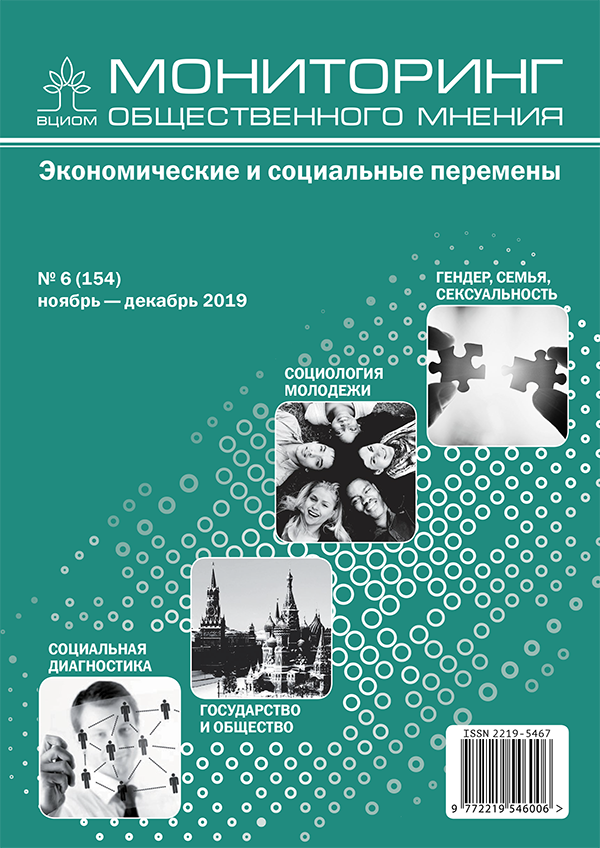Restrictions for young women to enter the civil service in the Russian Federation (based on an experiment)
DOI:
https://doi.org/10.14515/monitoring.2019.6.13Keywords:
gender, gender studies, intersectional approach, civil service, women in the civil service, inequality, discrimination, employment discrimination, motherhood penalty, dominant masculinityAbstract
The Russian legislation, along with international laws and regulations, provides legal protection of women in social relations; however, conventional views of men’s and women’s roles are an obstacle to the enjoyment of rights and freedoms to the fullest. Indeed, young job seekers face difficulties being hired despite gender equality guaranteed by the Russian Labor Code (Part 1 Article 3).
The article explores whether the public bodies are ready to hire pregnant women or women with family obligations, as well as men with family obligations. In doing so the authors conducted an experiment – a telephone survey of contact persons using a list of job vacancies published on the “Federal portal of managerial personnel” containing useful information on entry into civil service.
The experiment reveals that the civil servants responsible for interactions with job applicants tend to reproduce gender stereotypes. Young women receive motherhood penalty upon entry into civil service due to dominating masculinity.
Acknowledgments. The publication is part of the project (no. 18-05-0049) carried out in the framework of the HSE Academic Foundation Program (2018) and in the framework of the Russian academic excellence project 5-100.






